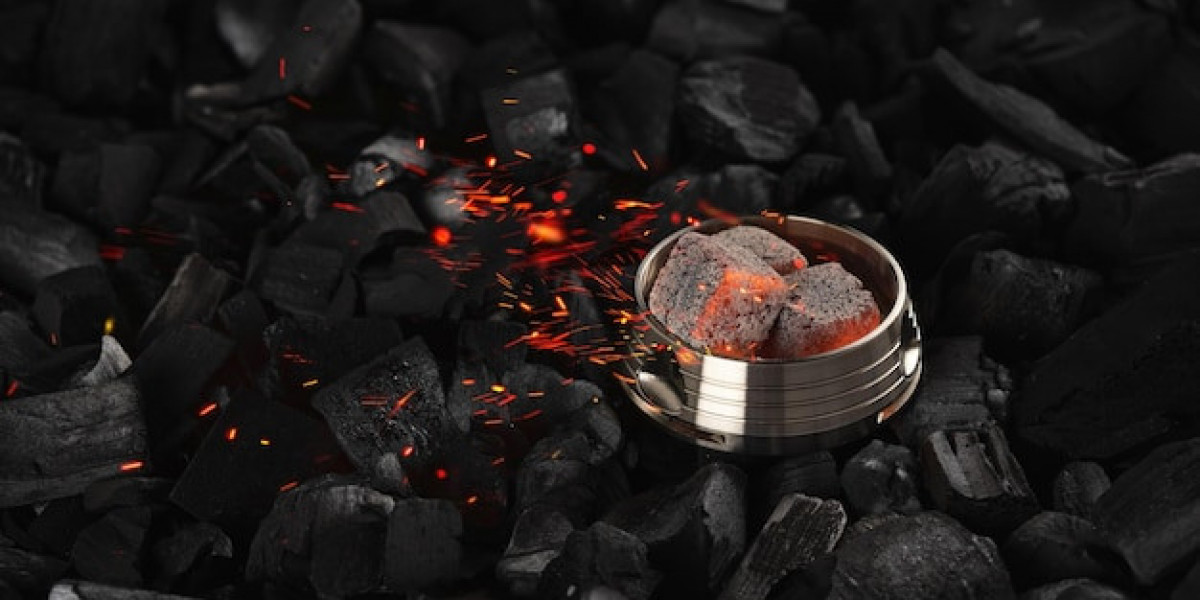Steel is one of the most important materials in the world. It is used to build everything from bridges and skyscrapers to cars and household appliances. But have you ever wondered how steel is made? The answer lies in coking coal, a special type of coal that plays a crucial role in steel production. Without coking coal, the steel industry would not be able to produce high-quality steel for modern infrastructure and manufacturing.
Unlike regular coal, coking coal has unique properties that make it perfect for steelmaking. It is heated at extremely high temperatures in a process called coke-making, where impurities are removed, and a strong, carbon-rich material known as coke is formed. This coke is then used in blast furnaces to convert iron ore into molten iron, which is the first step in making steel. Because coking coal is essential for this process, it remains a key raw material for the steel industry.
How Coking Coal is Different from Thermal Coal
Coal is used in different industries, but not all coal is the same. Many people confuse coking coal with thermal coal, but they have very different uses. Thermal coal is mainly used for electricity generation. Power plants burn thermal coal to produce energy, which then powers homes, industries, and cities. Coking coal, on the other hand, is used in steel production because it has a special ability to create coke when heated in the absence of oxygen.
Coke acts as a fuel and reducing agent in blast furnaces. It helps extract iron from iron ore by removing oxygen and leaving behind pure molten iron. This process cannot be done with thermal coal because it does not have the right properties. That’s why steelmakers specifically need coking coal to produce high-quality steel.
How Coking Coal Plays a Role in Steel Production
Steel is made through a process called the blast furnace method, where iron ore, coking coal, and limestone are combined in a high-temperature environment. The heat from coke burns at extremely high temperatures, reaching nearly 2000°C, which helps melt the iron ore. The molten iron is then processed into steel, which can be shaped into different products for construction, automobiles, and industrial use.
Steelmakers rely heavily on coking coal because it provides the carbon needed to remove impurities from iron ore. The better the quality of coking coal, the stronger and more durable the steel will be. Many of the world’s largest steel-producing countries, such as China, India, and Japan, require huge amounts of coking coal to keep up with demand for steel products.
Why Coking Coal is Still Essential in the Modern Steel Industry
Even though technology has advanced, coking coal is still the most efficient and reliable raw material for steel production. Some alternatives, like electric arc furnaces (EAF), use scrap metal to make steel, but they cannot completely replace traditional steelmaking methods. The reason is that EAF steel production depends on the availability of scrap metal, which is not always enough to meet global steel demand.
Many industries need steel with specific properties that can only be achieved through the blast furnace process using coking coal. High-strength steel used in bridges, railways, and skyscrapers needs high-quality raw materials, and coking coal ensures that steel remains strong, durable, and resistant to extreme conditions.
Another reason why coking coal is still crucial is that there are no perfect substitutes for it. While scientists are researching cleaner alternatives, there is currently no other material that can fully replace the role of coking coal in traditional steelmaking. This means that as long as steel is needed, coking coal will continue to be a key raw material in the industry.
The Impact of Global Demand on Coking Coal Prices
The steel industry is growing rapidly, especially in developing countries where new infrastructure projects are increasing the demand for steel. This also means that the demand for coking coal is rising, directly impacting its price. When more steel is needed, steelmakers buy more coking coal, pushing prices higher.
On the other hand, if steel production slows down due to economic downturns or trade restrictions, the demand for coking coal decreases, causing prices to fall. Because the steel industry depends on coking coal, any changes in global steel demand immediately affect its price.
Countries like China, which is the largest steel producer in the world, have a significant impact on the coking coal market. When China increases steel production, it buys more coking coal, creating higher demand and price fluctuations. Other major steel-producing nations, such as India, Japan, and South Korea, also influence the global supply and demand of coking coal.
Environmental Concerns and the Future of Coking Coal
While coking coal is necessary for steelmaking, there are growing concerns about its environmental impact. The coke-making process releases carbon dioxide and other greenhouse gases into the atmosphere, contributing to global climate change. Many steel companies are looking for cleaner ways to produce steel while reducing their carbon footprint.
Some companies are investing in new technologies like hydrogen-based steelmaking, which could eventually reduce the need for coking coal. However, these technologies are still in the early stages and are not yet widely used. Until better alternatives are developed and implemented on a large scale, coking coal will remain essential for steel production.
PriceVision.ai – The Best Way to Track Coking Coal Prices and Trends
With coking coal being such an important raw material, businesses and investors need accurate market data to make smart decisions. PriceVision.ai provides real-time price analysis, helping companies track coking coal demand, supply, and price trends with the latest AI-driven insights.
PriceVision.ai uses artificial intelligence to monitor global markets and predict price changes based on steel industry demand, government policies, and environmental regulations. By analyzing market data, traders and businesses can make informed decisions on when to buy or sell coking coal, reducing risks and maximizing profits.
Another advantage of PriceVision.ai is its ability to detect early market trends. Instead of waiting for traditional reports, users get instant alerts about price movements and demand fluctuations. This gives them a competitive edge in the coking coal market, ensuring they stay ahead of industry changes.
Conclusion
The steel industry cannot function without coking coal, as it remains the most effective raw material for producing high-quality steel. Unlike other types of coal, coking coal has unique properties that allow it to be converted into coke, which is essential for extracting iron from iron ore.
Even with the rise of alternative steelmaking methods, coking coal continues to play a critical role due to its efficiency, strength, and cost-effectiveness. The global demand for steel keeps increasing, and as a result, the demand for coking coal remains strong. While environmental concerns are pushing for cleaner alternatives, there is currently no full replacement for coking coal in traditional steelmaking.
For businesses that depend on coking coal, staying informed about price trends and market changes is essential. PriceVision.ai provides AI-powered insights, helping businesses track coking coal prices and make smarter trading decisions. As the steel industry continues to evolve, having accurate market data is more important than ever, and PriceVision.ai ensures that users stay ahead in the competitive coking coal market.
To Get Real-time Price of Coking Coal Visit: https://pricevision.ai/
Source: https://diigo.com/0ywtxe









